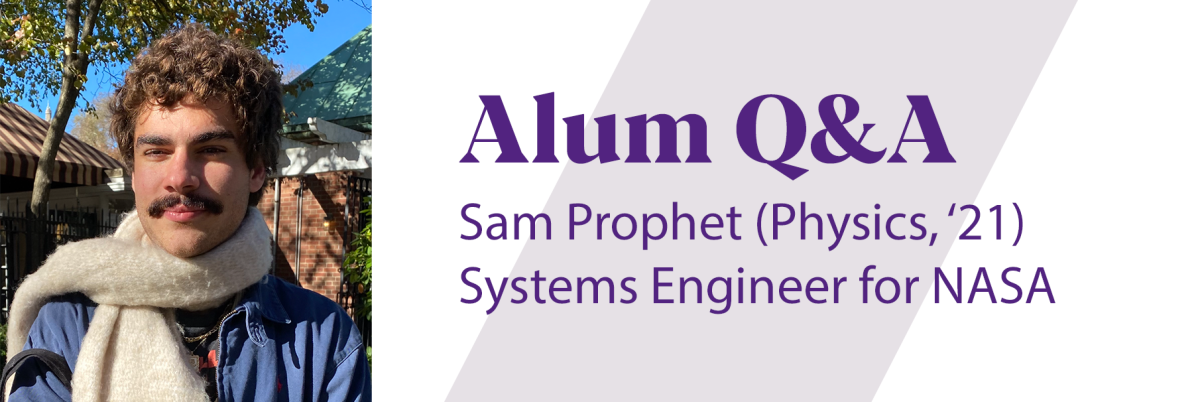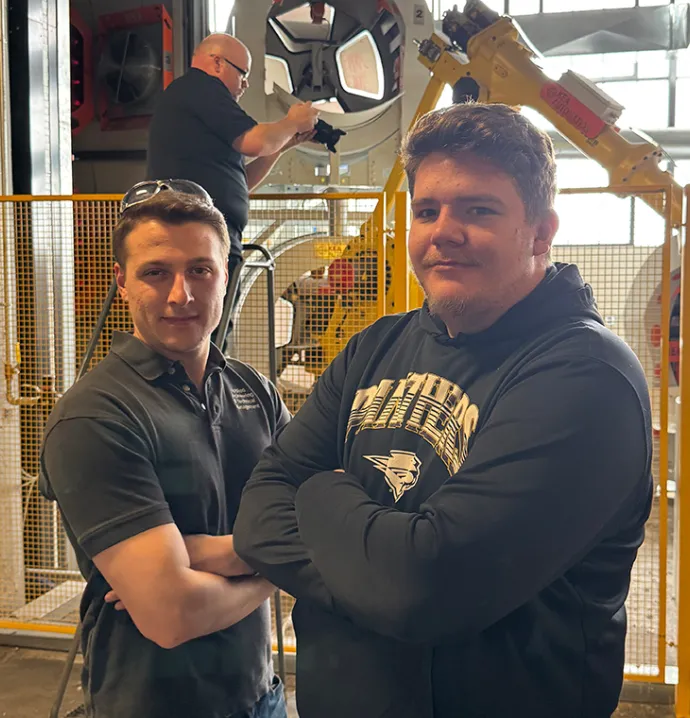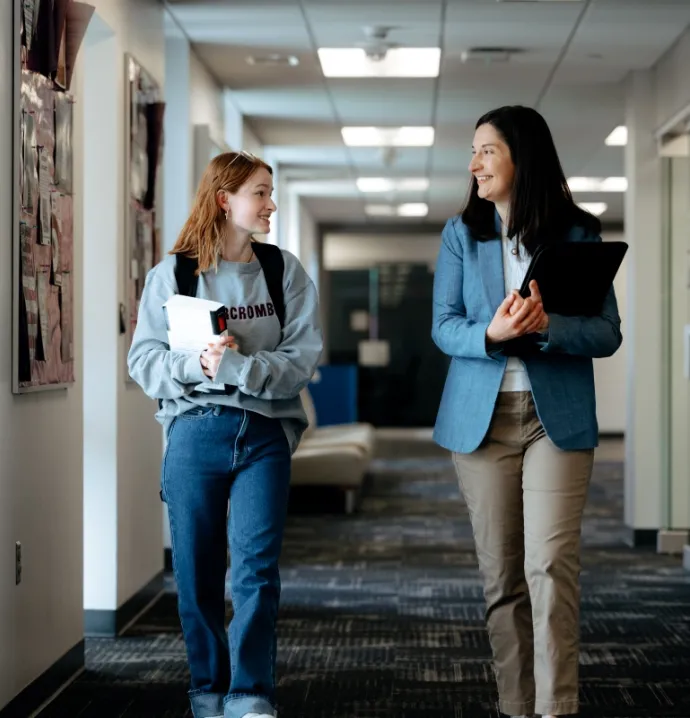Q&A with physics alum Sam Prophet
Q&A with physics alum Sam Prophet

Sam Prophet received a B.S. in Physics from UNI in 2021. He is currently a systems engineer at NASA and is working on the Artemis program. He was kind enough to give Cross Sections some of his time.
Where were you born and where did you grow up? I was born in Murray, Kentucky. My parents moved to Cedar Falls when I was two or three I believe.
When were you a student at UNI? From August 2017– May 2021
Why did you choose UNI for your undergraduate studies? What degree program(s) were you enrolled in? I chose UNI after meeting with Dr. Shand my senior year of high school and touring the physics department. I knew that I would be majoring in physics (later picking up a minor in mathematics) and toured a few schools during that time. The student to faculty ratio and the amount of student research being conducted really made UNI stand out from the other schools I visited.
What did you enjoy about being a student at UNI? Once I left school and met other recent graduates, I realized that I was very lucky to have faculty that really rooted for my success and were willing to devote their time to questions. In a lot of schools, you’re lucky if the professor knows your name, and questions to the faculty often go unanswered.
What were your favorite courses? Why? I think my favorite class was probably Classical Mechanics. It was hard, but it was a fun sort of struggle, with a really gratifying feeling of finally understanding something. I also really liked Computational Physics for allowing students to come up with their own simulations.
Do you have a favorite Physics Department-related memory from your time as a student? Probably being in the Electronics Lab at midnight with other students, trying to get our final projects to work. To this day I still wonder how I messed up a guitar pedal so badly.
Where have you worked since graduating? After graduating UNI, I started a Ph.D. before beginning an engineering career. The first job I had was as an electrical engineer for a boat manufacturer. After 6 months, I moved on to NASA.
Who is your current employer and what is your position? I currently work at NASA under the propellants contract as a systems engineer. If you’ve been following the Artemis program and the attempted launches lately, you’ve probably heard liquid hydrogen mentioned several times, usually not enthusiastically. And while liquid hydrogen has been at the forefront of everyone’s mind, there are a number of other gasses and liquids that are just as important (and at times annoying) to the fuel loading and propellent system process. It comes as no surprise that all of these different materials require unique systems all throughout the Kennedy Space Center.
In general, a systems engineer is responsible for maintaining and coordinating the development or upkeep of a complex system. The systems I manage day to day are pressurized gas systems including He, N2, and breathing air. Each of these ‘commodities’ are utilized in different areas throughout the Space Center, and each system requires almost constant updating, troubleshooting, testing, and redesigning.
Working for the government means providing very clear documentation. Systems engineers aren’t the only ones responsible for this, but changes to a system that I’m responsible for means a lot of justifications and descriptions will be expected. Along with this, safety is a large part of a systems engineer’s job. When a system undergoes a change, verification that a system can be maintained and is safe for launch are huge factors in justifications.
How has your UNI physics degree helped you succeed in your career? Systems engineering is a great field for someone looking to enter engineering with a physics degree. The problems you solve vary drastically in disciplines of engineering; within a week I’ll work on electrical, pneumatic, and mechanical issues. The physics program at UNI exposed me to so many different fields of study, that I feel confident in my ability to face almost any engineering issue, regardless of the discipline. A bonus is that recruiters really like physics majors!
What advice do you have for current students as they prepare to seek employment? Patience and persistence. It’s easy to get bogged down after getting rejected. I interviewed for three separate positions at NASA before getting one. And once I got here and talked to my coworkers about my experience, I realized that everyone goes through the same thing. So just keep applying and going on interviews. It’ll happen!
After this interview was conducted, the Artemis I rocket was launched and successfully completed its mission.




